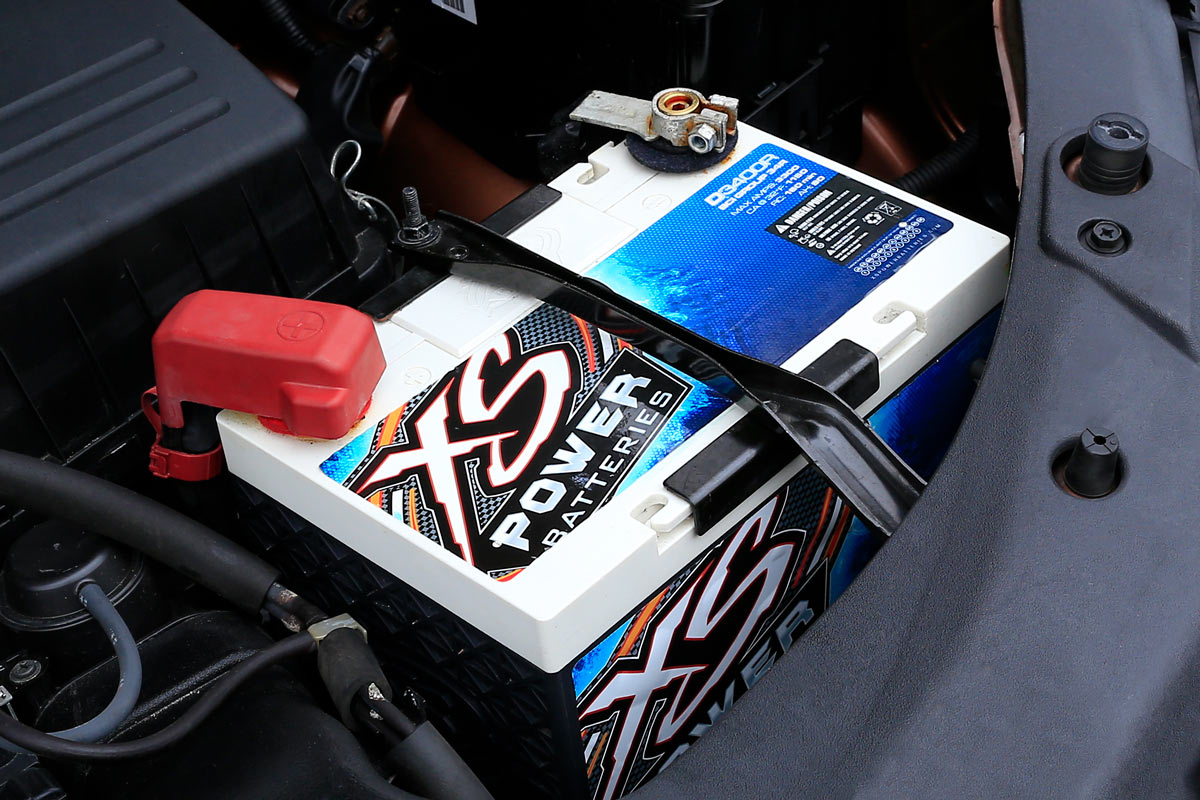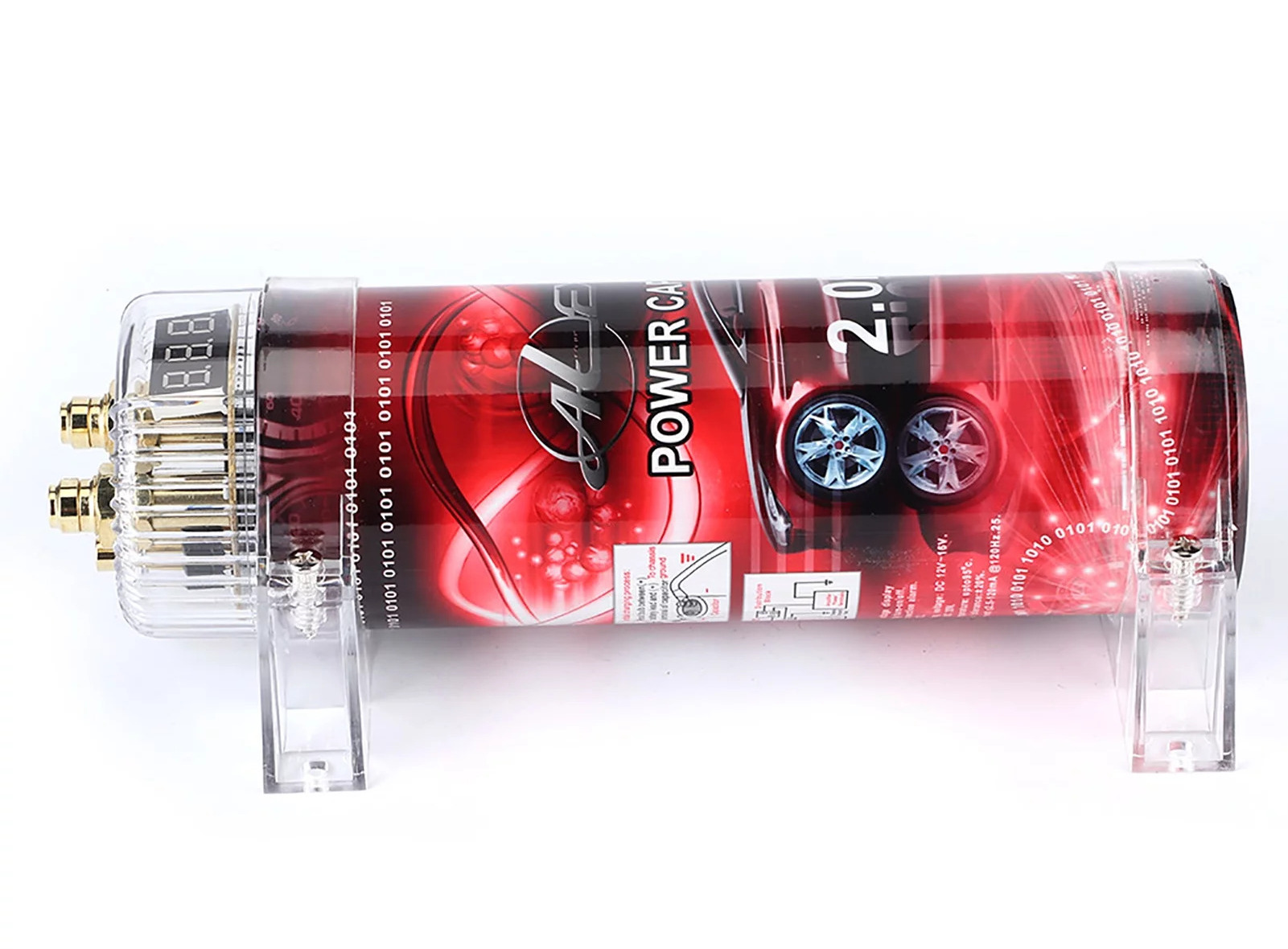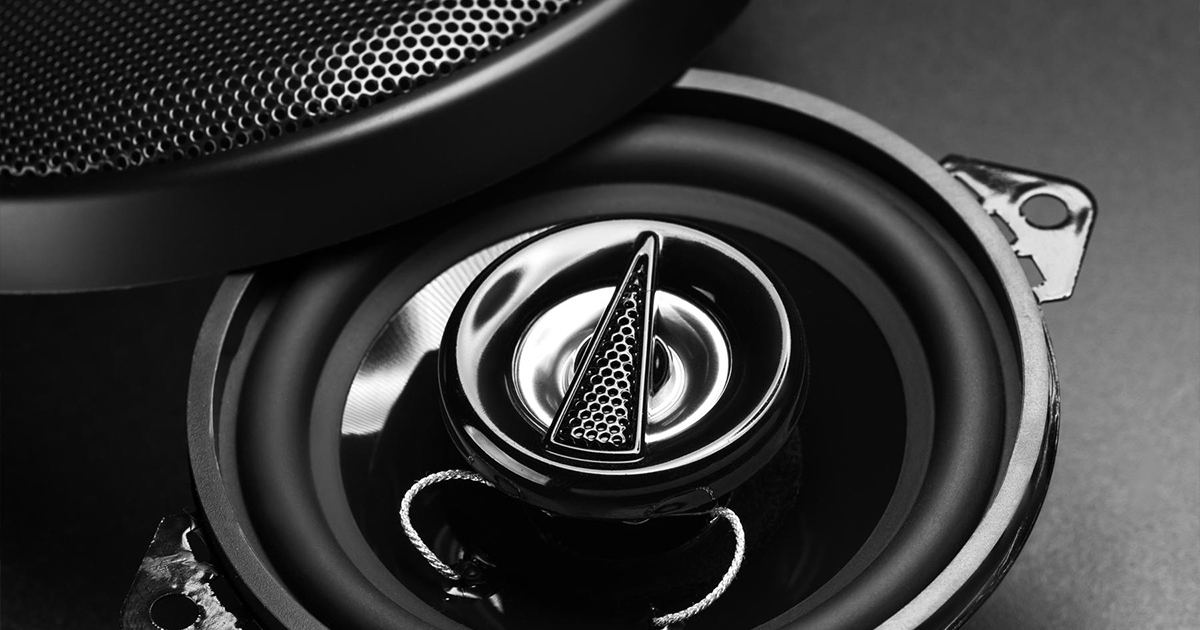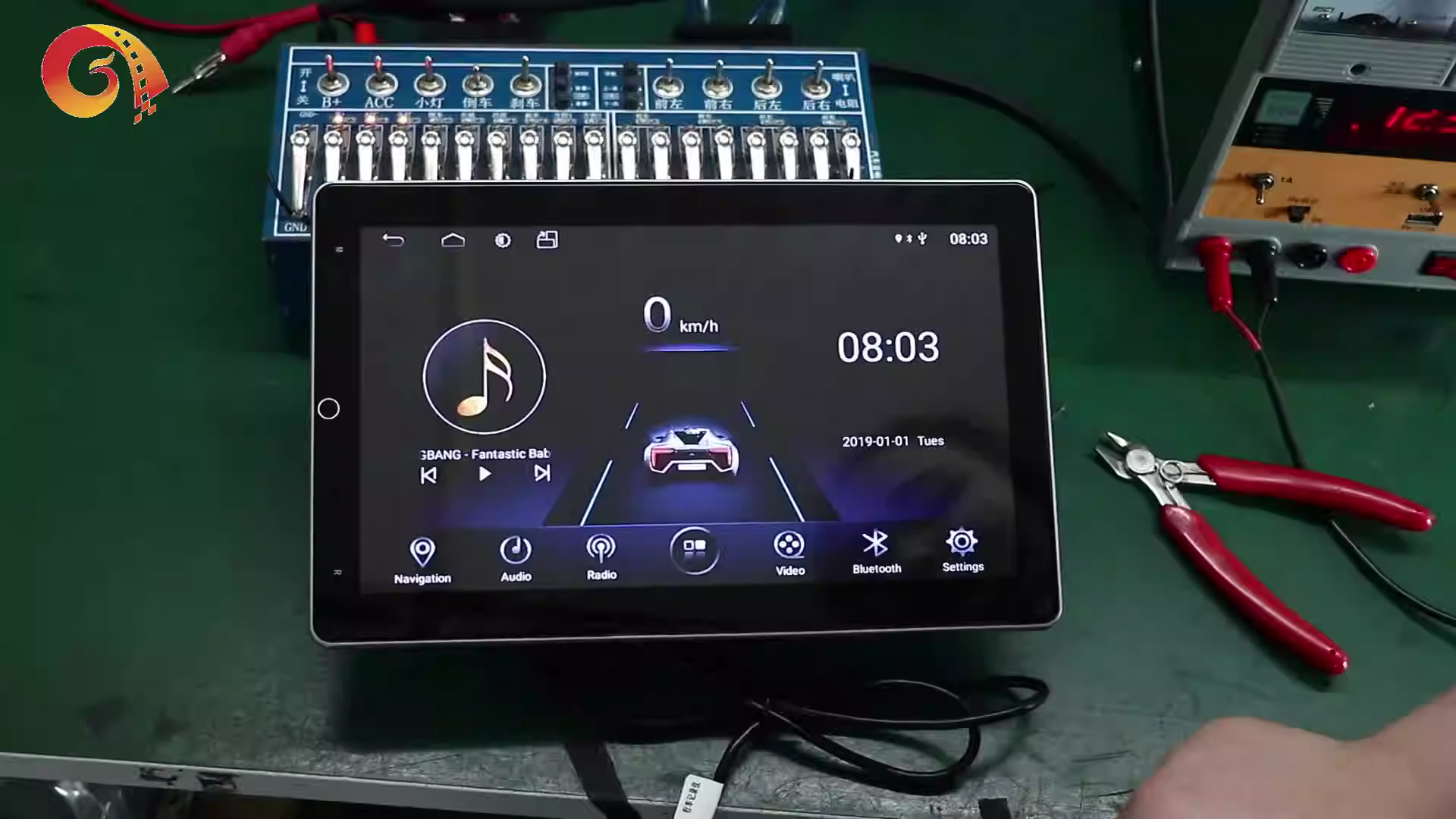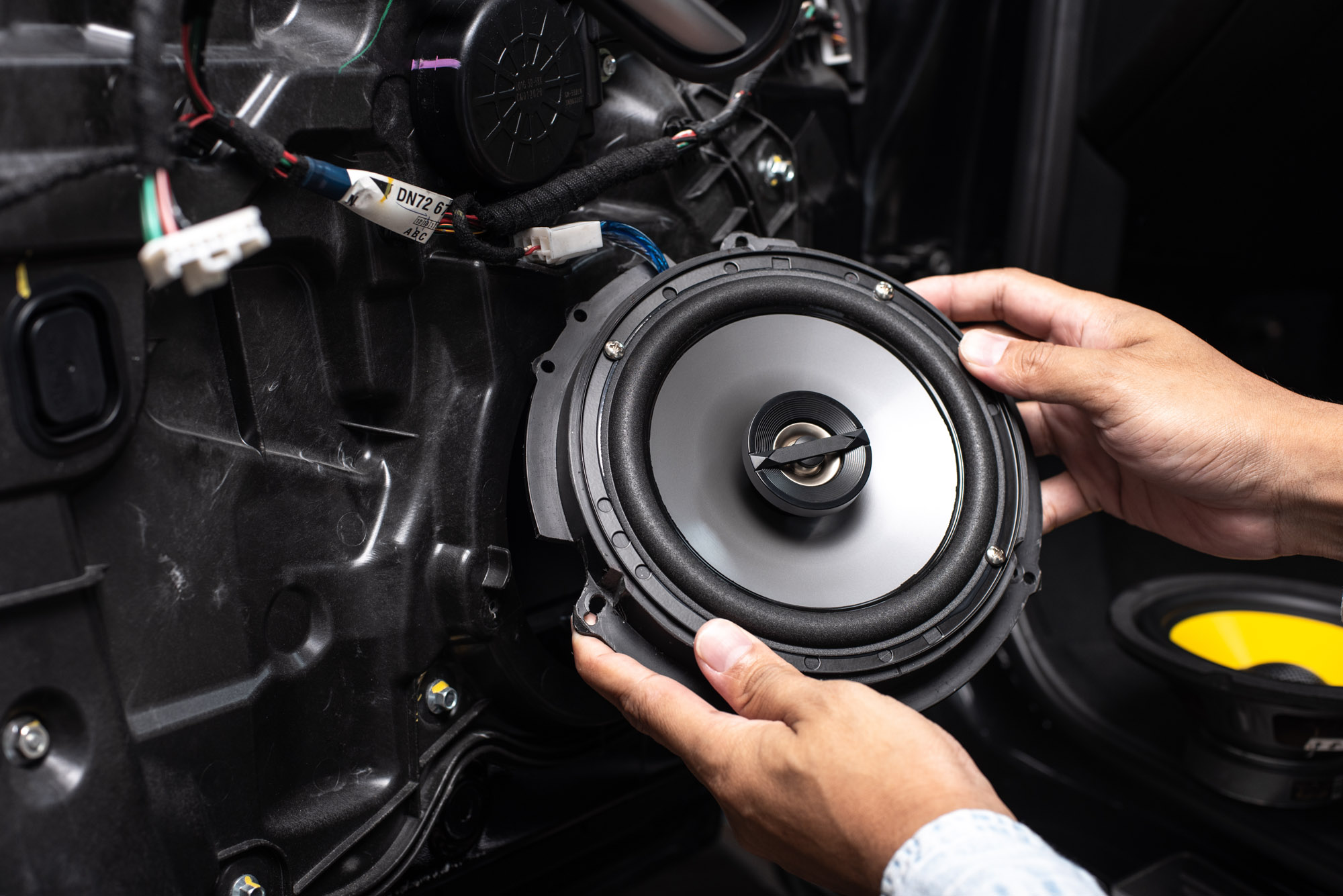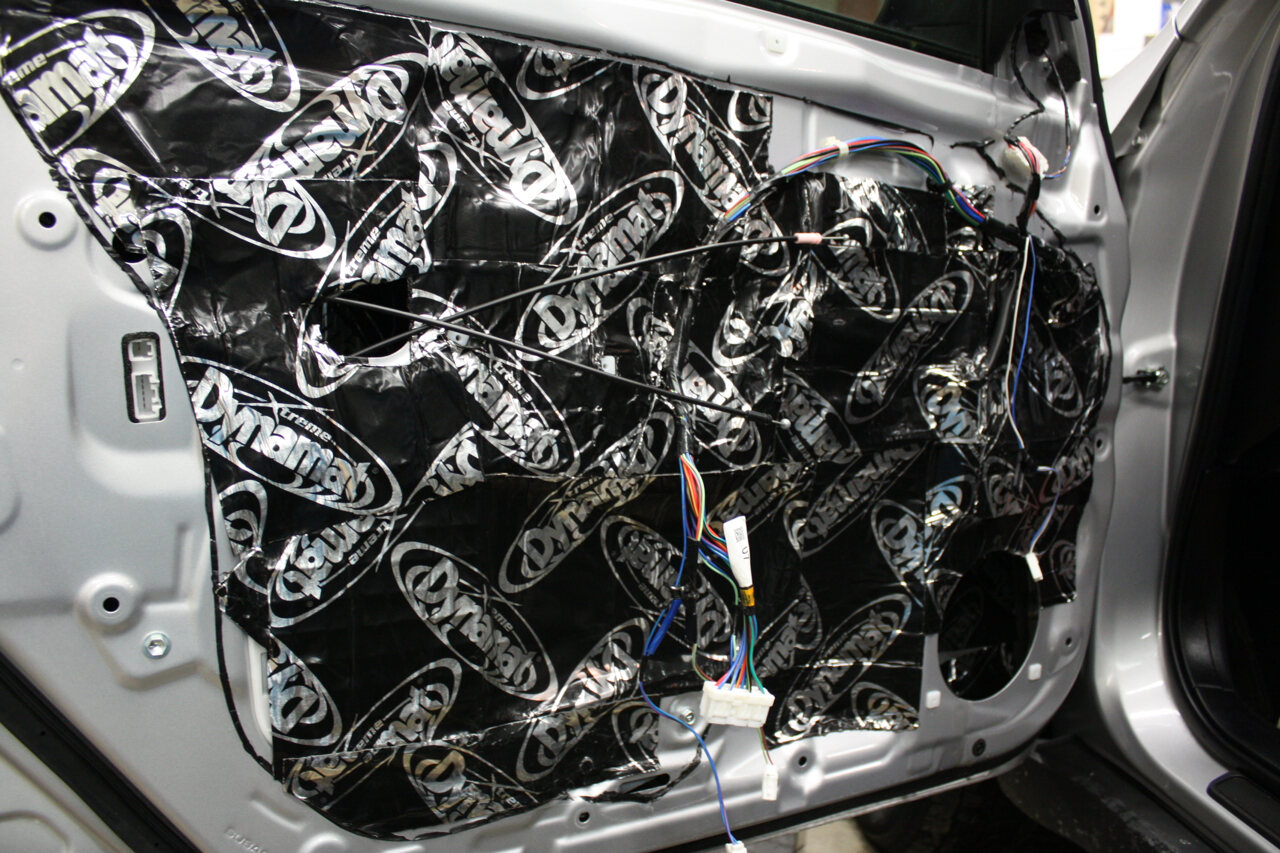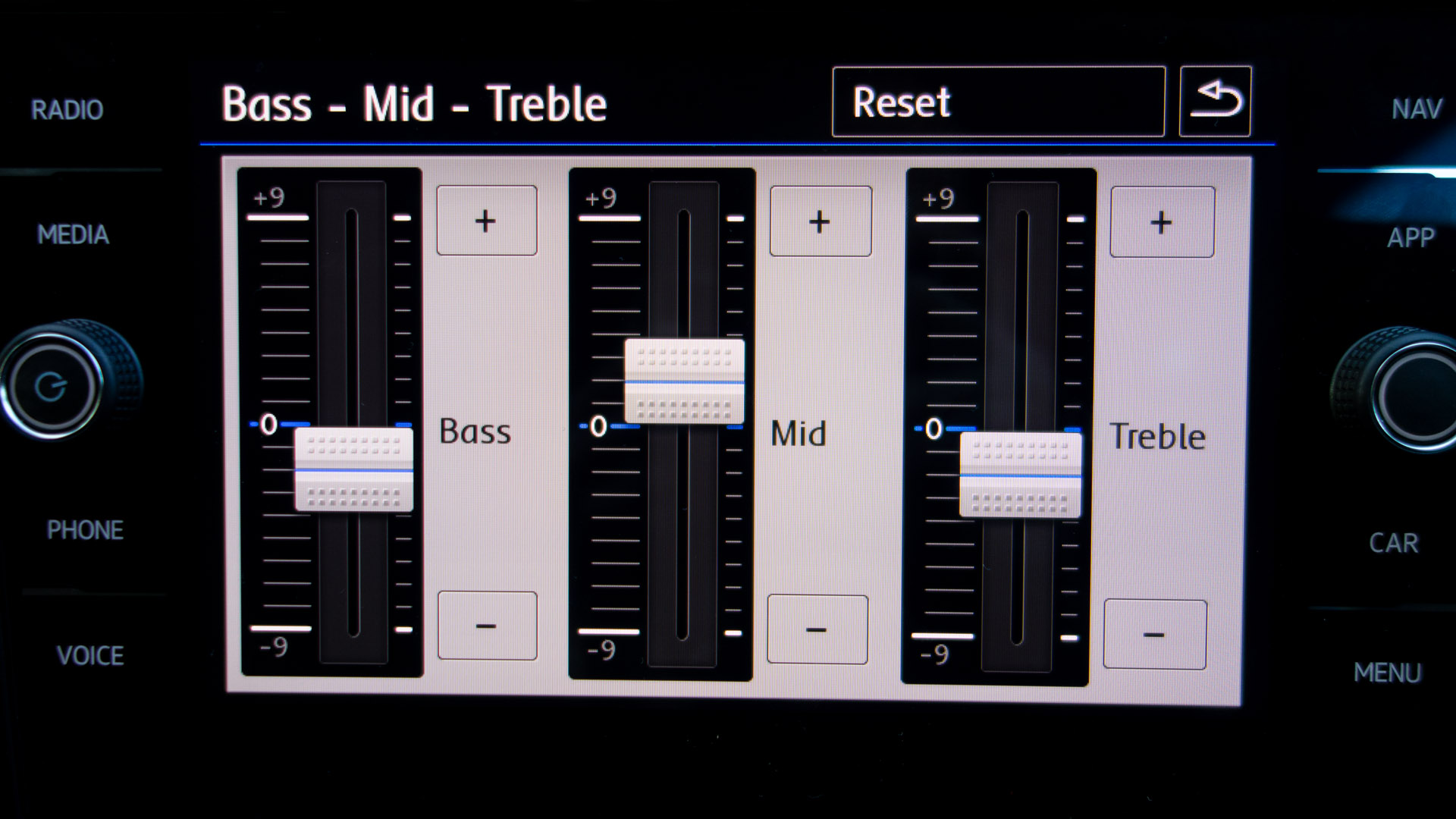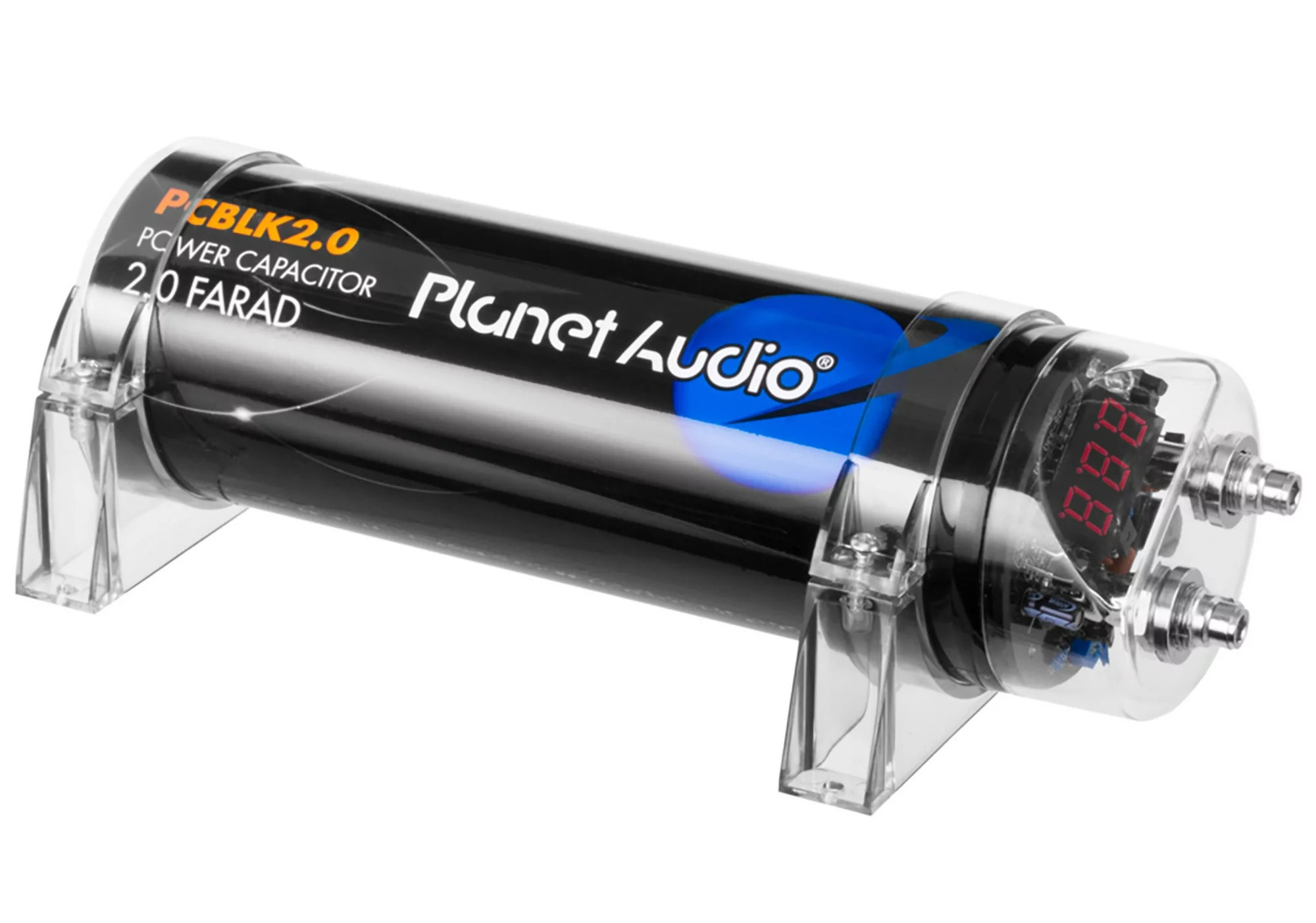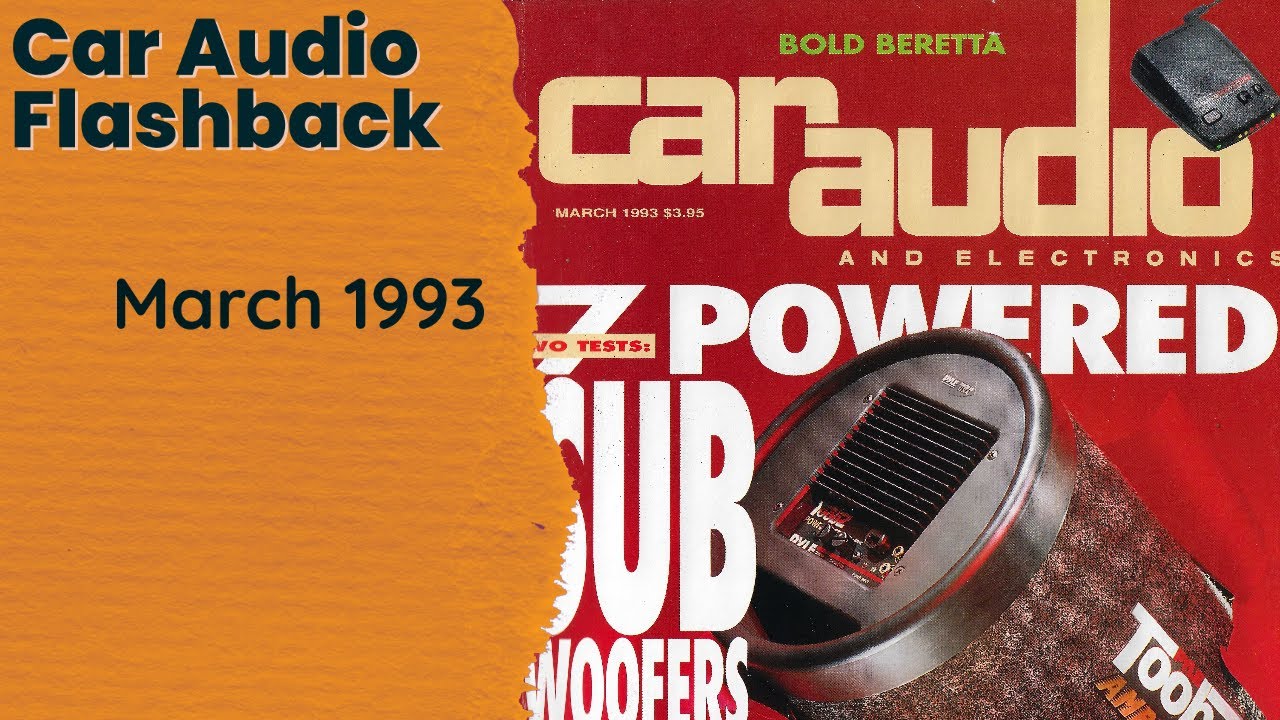Home>Devices & Equipment>Car Audio>What Is SVC Car Audio
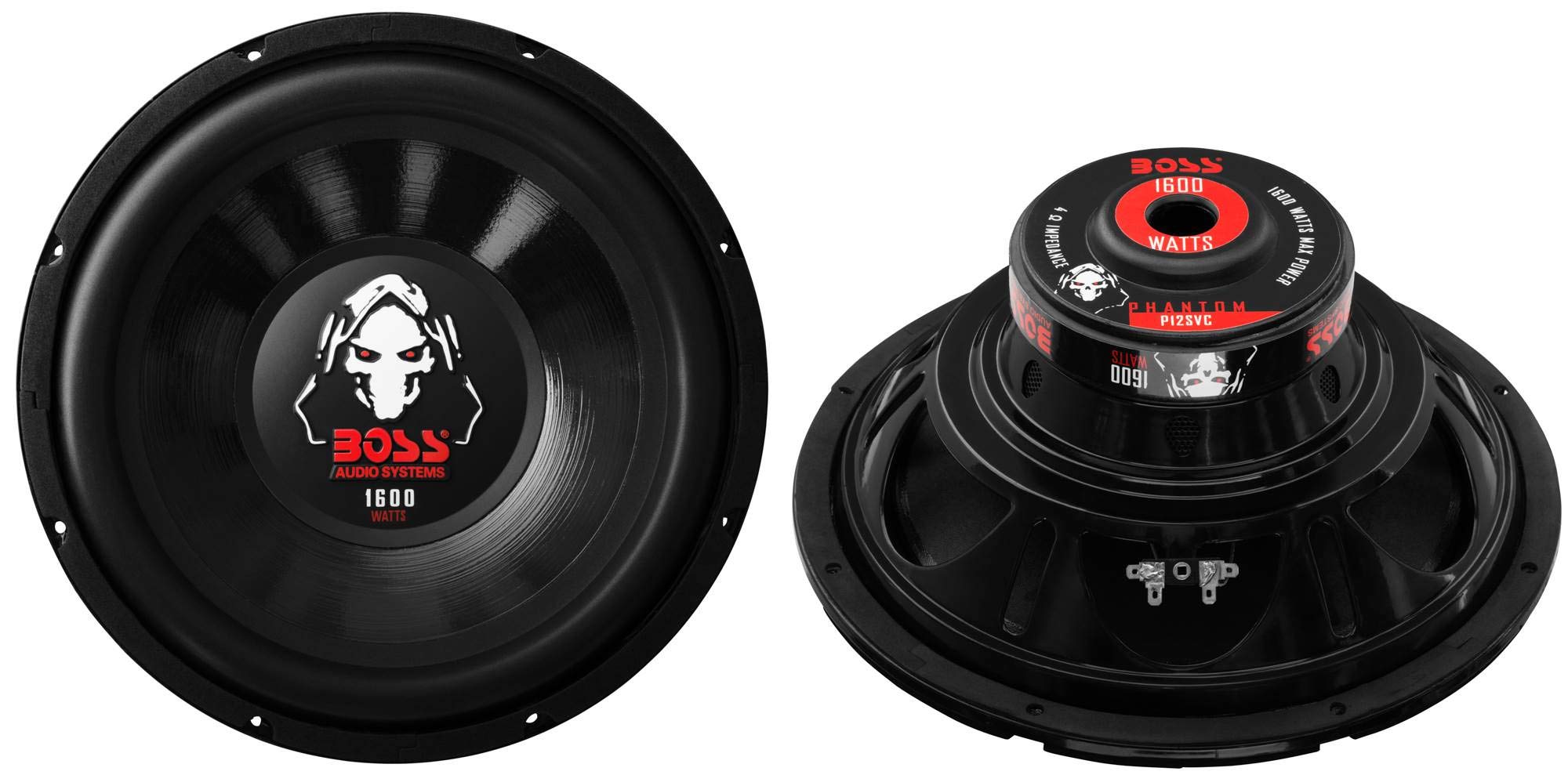

Car Audio
What Is SVC Car Audio
Published: February 5, 2024
Discover the world of SVC car audio and unlock superior sound quality for your vehicle. Explore the latest car audio systems, speakers, amplifiers, and more.
(Many of the links in this article redirect to a specific reviewed product. Your purchase of these products through affiliate links helps to generate commission for AudioLover.com, at no extra cost. Learn more)
Table of Contents
Introduction
Welcome to the world of car audio! Whether you’re a music enthusiast or simply looking to upgrade your vehicle’s audio system, understanding the different options available can be overwhelming. One popular choice is SVC (Single Voice Coil) car audio systems. In this article, we will delve into the world of SVC car audio, exploring its components, benefits, drawbacks, and how it compares to other car audio systems.
SVC car audio systems are widely recognized for their simplicity and affordability, making them a popular choice among car owners. These systems consist of a single voice coil, which is a conductive wire wrapped around a cylinder-shaped former. This coil is responsible for generating the electrical signals that cause the speaker cone to vibrate, producing sound waves.
Unlike DVC (Dual Voice Coil) car audio systems, which have two independent voice coils, SVC systems have only one. This means that SVC systems can only be wired in a single impedance configuration, typically either 2-ohm or 4-ohm. While this limits the wiring options, it simplifies the installation process and makes it more accessible for beginners.
SVC car audio systems are compatible with a wide range of amplifiers, making them a versatile choice for car audio enthusiasts. Whether you have a compact car or a spacious SUV, you can easily find an SVC system that suits your needs.
Now that we have covered the basics, let’s dive deeper into the components of SVC car audio systems and explore their benefits and drawbacks in the following sections.
Overview of SVC Car Audio
SVC (Single Voice Coil) car audio systems are designed to provide high-quality sound reproduction in vehicles. They are composed of several key components that work together to create an immersive audio experience.
The heart of any SVC car audio system is the speaker. SVC speakers come in a variety of sizes and configurations to fit different vehicles and audio preferences. They are typically constructed with durable materials like polypropylene or fiberglass, ensuring longevity and optimal sound performance.
Powering the speaker is the amplifier. The amplifier takes the audio signal from the head unit and amplifies it, providing the necessary power to drive the speaker and produce sound. SVC systems are compatible with a wide range of amplifiers, making it easy to find the right match for your desired sound output.
To control and fine-tune the audio, SVC car audio systems often include a crossover. The crossover separates the audio signal into different frequency ranges, directing specific frequencies to the appropriate components. This helps to optimize sound quality and prevent distortion.
In addition to speakers, amplifiers, and crossovers, SVC car audio systems may also include subwoofers. Subwoofers are specialized speakers that reproduce low-frequency sounds, enhancing the bass response and adding depth to the audio experience. They are housed in a separate enclosure, designed to deliver powerful bass without sacrificing clarity.
Another key component in SVC car audio systems is the head unit. The head unit serves as the control center for the audio system, allowing you to adjust volume, select audio sources, and access additional features such as Bluetooth connectivity or built-in equalizers. Many head units also offer compatibility with smartphone integration, giving you access to your favorite music apps and navigation tools.
Overall, SVC car audio systems offer a comprehensive solution for upgrading your vehicle’s sound system. They provide a balance of affordability, simplicity, and flexibility, making them suitable for both casual listeners and audio enthusiasts alike.
Components of SVC Car Audio
Understanding the key components of SVC (Single Voice Coil) car audio systems is essential for getting the most out of your audio setup. These components work together seamlessly to deliver high-quality sound in your vehicle.
- Speaker: The speaker is the most crucial component of any car audio system. SVC speakers are available in various sizes and designs to fit different vehicle models and accommodate personal preferences. They are typically built with materials that can withstand the challenges of a car environment, such as heat and vibration.
- Amplifier: The amplifier is responsible for boosting the audio signal and providing the necessary power to drive the speakers. SVC car audio systems can be paired with a wide range of amplifiers, allowing you to tailor the power output to your specific needs. When choosing an amplifier, ensure it is compatible with the impedance of your SVC speaker.
- Crossover: The crossover is a device that splits the audio signal into different frequency ranges and directs them to the appropriate speakers. It ensures that low-frequency sounds go to the subwoofer, mid-range sounds go to the mid-range speakers, and high-frequency sounds go to the tweeters. This separation helps prevent distortion and ensures each speaker produces the best sound quality in its respective frequency range.
- Subwoofer: If you crave deep, impactful bass, a subwoofer is an essential component to consider in your SVC car audio system. The subwoofer is specifically designed to handle low-frequency sounds, adding depth and richness to your music. It is usually housed in a separate enclosure that is acoustically optimized for powerful bass reproduction.
- Head Unit: The head unit, also known as the car stereo or receiver, serves as the control center of your audio system. It provides features such as volume control, equalizer settings, audio source selection, and in some cases, built-in navigation systems or smartphone integration. When choosing a head unit, make sure it is compatible with your SVC speaker and amplifier, as well as any additional features you desire.
By understanding the purpose and functionality of each component, you can effectively select and integrate the necessary elements of an SVC car audio system to create a well-balanced and immersive audio experience in your vehicle.
Benefits of SVC Car Audio Systems
SVC (Single Voice Coil) car audio systems offer several advantages that make them a popular choice among car enthusiasts and casual listeners alike. Let’s explore some of the key benefits of SVC car audio systems.
- Simplicity and Affordability: One of the main advantages of SVC car audio systems is their simplicity and affordability. With only one voice coil, wiring an SVC speaker is straightforward and requires fewer connections compared to DVC (Dual Voice Coil) speakers. This makes installation easier, especially for beginners who may be unfamiliar with complex wiring setups. Additionally, SVC systems often come at a lower price point compared to their DVC counterparts, making them a cost-effective option for upgrading your car’s audio system.
- Versatility and Compatibility: SVC car audio systems are compatible with a wide range of amplifiers, giving you the flexibility to choose the right combination for your desired sound output. Whether you prefer a subtle audio upgrade or want to rock the neighborhood, you can find an amplifier that suits your preferences and power requirements. Furthermore, SVC speakers are available in various sizes and configurations, ensuring compatibility with different vehicle models and speaker locations.
- Decent Sound Quality: While SVC car audio systems may not offer the same level of customization and sound precision as some high-end setups, they can still deliver impressive sound quality. SVC speakers are designed to reproduce a wide range of frequencies, ensuring clarity and detail across different types of music. When properly installed and matched with a suitable amplifier, SVC systems can produce well-balanced audio with good bass response and accurate mid-range and high-frequency reproduction.
- Space-saving Design: SVC speakers are typically designed to fit into compact spaces in your vehicle, making them an ideal choice for smaller cars or tight speaker locations. The single voice coil and smaller physical size allow for greater flexibility in installation, ensuring that you can maximize available space without compromising on sound quality.
- Ease of Replacement and Upgrades: If a component in your SVC car audio system needs replacement or if you decide to upgrade your system in the future, it is relatively simple and cost-effective to find a compatible replacement or upgrade. With the wide availability of SVC speakers, amplifiers, and other components, you can easily find the right match to maintain or enhance your audio experience.
Overall, SVC car audio systems offer a compelling combination of simplicity, affordability, compatibility, and decent sound quality. Whether you are a casual listener or an audio enthusiast, SVC systems provide an excellent option to enhance your in-car audio experience.
Drawbacks of SVC Car Audio Systems
While SVC (Single Voice Coil) car audio systems offer several benefits, it’s important to be aware of their limitations and drawbacks. Let’s explore some of the key drawbacks of SVC car audio systems.
- Limited Wiring Options: Unlike DVC (Dual Voice Coil) speakers that offer multiple wiring options, SVC speakers can only be wired in a single impedance configuration, typically 2-ohm or 4-ohm. This limitation means you have fewer options when it comes to optimizing your system’s power delivery and speaker configuration.
- Lower Power Handling: SVC speakers generally have lower power handling capabilities compared to their DVC counterparts. This means that they may not be able to handle high power inputs, limiting their ability to produce extremely loud or dynamic sound. If you are looking for a system that can handle heavy power loads, consider opting for DVC speakers instead.
- Less Precision in Sound Tuning: SVC systems may offer fewer options for fine-tuning and adjusting the sound compared to more advanced car audio setups. They generally lack features such as adjustable crossover points, phase adjustments, or advanced equalization controls. If you are an audiophile seeking precise control over your sound reproduction, SVC systems may not provide the level of customization you desire.
- Potential for Overheating: Due to the nature of having a single voice coil, SVC speakers may be more prone to overheating when driven at high volumes or for long periods. This can lead to a loss of sound quality or, in extreme cases, damage to the speaker. It’s important to ensure that your amplifier and speaker combination is properly matched and that you do not push the system beyond its recommended limits.
- Suboptimal for Advanced Sound Systems: If you are building a highly advanced and sophisticated car audio system with multiple speakers, amplifiers, and signal processors, SVC speakers may not be the best choice. Their simplicity and limited wiring options make them more suitable for basic or moderate audio upgrades rather than complex installations.
While considering these drawbacks, it’s important to assess your own audio needs and preferences before deciding on an SVC car audio system. If you prioritize simplicity, affordability, and moderate sound quality, SVC systems can be a suitable choice. However, if you crave advanced customization options, higher power handling, or precise sound tuning, you may want to explore other car audio options.
Comparison with other Car Audio Systems
When choosing a car audio system, it’s essential to consider the different options available and understand how they compare to each other. Let’s take a closer look at how SVC (Single Voice Coil) car audio systems stack up against other common car audio systems.
DVC (Dual Voice Coil) Systems: DVC systems offer more flexibility when it comes to wiring options. With two independent voice coils, DVC speakers allow for different impedance configurations, making it easier to match the speaker’s impedance with the amplifier. This flexibility can be advantageous if you have specific power requirements or want to create more elaborate speaker configurations. Additionally, DVC speakers usually have higher power handling capabilities, allowing for louder and more dynamic sound reproduction.
Component Systems: Component systems are a high-end option for car audio enthusiasts who want the best possible sound quality. These systems typically consist of separate tweeters, mid-range drivers, and subwoofers that can be placed in optimal locations within the vehicle. Component systems offer superior sound reproduction, detailed imaging, and a wide soundstage. However, they are more complex to install and require advanced tuning to achieve their full potential.
Factory Systems: Factory car audio systems come pre-installed in many vehicles. While they may provide decent sound quality for everyday listening, they are often limited in terms of power, frequency response, and customization options. Upgrading to an SVC car audio system can significantly enhance the listening experience, offering better sound quality and more flexibility for personalization.
Powered Systems: Powered car audio systems include an amplifier built into the speaker enclosure or the head unit itself. These systems are convenient and can be a good option for those seeking a simple setup with better sound than factory systems. However, while they offer an all-in-one solution, they may lack the power and customization options of a separate amplifier and speaker setup like SVC systems.
When comparing SVC car audio systems with other options, it’s important to consider your specific needs and priorities. If you’re looking for a simple and affordable upgrade that still delivers decent sound quality, SVC systems are a great choice. However, if you want more advanced customization, higher power handling, or premium sound quality, you may want to explore other options such as DVC or component systems.
Important Considerations for SVC Car Audio Installation
When installing an SVC (Single Voice Coil) car audio system, there are several important factors to consider to ensure optimal performance and a seamless integration into your vehicle. Let’s explore some key considerations for SVC car audio installation.
- Speaker Size and Placement: Before purchasing an SVC speaker, make sure to determine the available space in your vehicle and ensure the speaker size fits properly. Additionally, consider the placement of the speaker for optimal sound imaging and dispersion. Don’t forget to check for any potential obstructions that may affect the installation process.
- Amplifier Compatibility: It is crucial to match the impedance of your SVC speaker with the appropriate amplifier. Check the specifications of both the amplifier and the speaker to ensure compatibility. Mismatched impedance can result in poor sound quality, reduced power output, and potential damage to the components.
- Wiring Configuration: Determine the desired wiring configuration for your SVC speaker. SVC speakers can typically be wired in either 2-ohm or 4-ohm configurations. Consider your amplifier’s capabilities and the specific audio needs to choose the right wiring configuration for your setup.
- Enclosure Design (for Subwoofers): If you are installing an SVC subwoofer, choosing the right enclosure is crucial. The enclosure influences the sound quality and the bass response. Depending on your preference and vehicle space, you can opt for a sealed enclosure for tighter and more controlled bass or a ported enclosure for louder and more resonant bass.
- Power Handling and Amplifier Output: Take into account the power handling capabilities of your SVC speaker and ensure that your amplifier can deliver the necessary power. Don’t overwhelm the speaker with excessive power that could result in distortion or damage.
- System Integration: Plan the integration of your SVC car audio system with other components, such as the head unit and crossover, if applicable. Ensure that all connections are secure and properly insulated to avoid signal loss or electrical interference.
- Professional Installation: While it’s possible to install an SVC car audio system yourself, it’s recommended to seek professional installation, especially if you are unfamiliar with car audio wiring and integration. A professional installer can ensure proper placement, wiring, and tuning, maximizing the performance of your SVC system.
By considering these factors during the installation process, you can achieve optimal performance and enjoy a rich and immersive audio experience in your vehicle with your SVC car audio system.
Conclusion
With their simplicity, affordability, and versatility, SVC (Single Voice Coil) car audio systems have become a popular choice for upgrading the audio experience in vehicles. They offer a balance of performance and convenience, making them suitable for both casual listeners and car audio enthusiasts.
Throughout this article, we explored the various components of SVC car audio systems, including speakers, amplifiers, crossovers, subwoofers, and head units. We also discussed the benefits, drawbacks, and important considerations for installation.
While SVC systems may have some limitations compared to other car audio systems such as DVC or component systems, they provide a budget-friendly and straightforward solution for improving your vehicle’s sound quality. Whether you’re looking to enhance bass response, improve clarity, or simply enjoy music on the go, SVC car audio systems can provide an immersive audio experience without breaking the bank.
Before diving into the world of car audio, take the time to assess your audio needs, budget, and level of expertise. Properly research the components, choose reliable brands, and consider seeking professional installation for the best results.
Remember, the ultimate goal of any car audio system is to create an enjoyable and immersive listening experience while on the road. Whether you’re cruising down the highway or stuck in traffic, let the power of SVC car audio systems elevate your journey and make every drive a memorable one.

